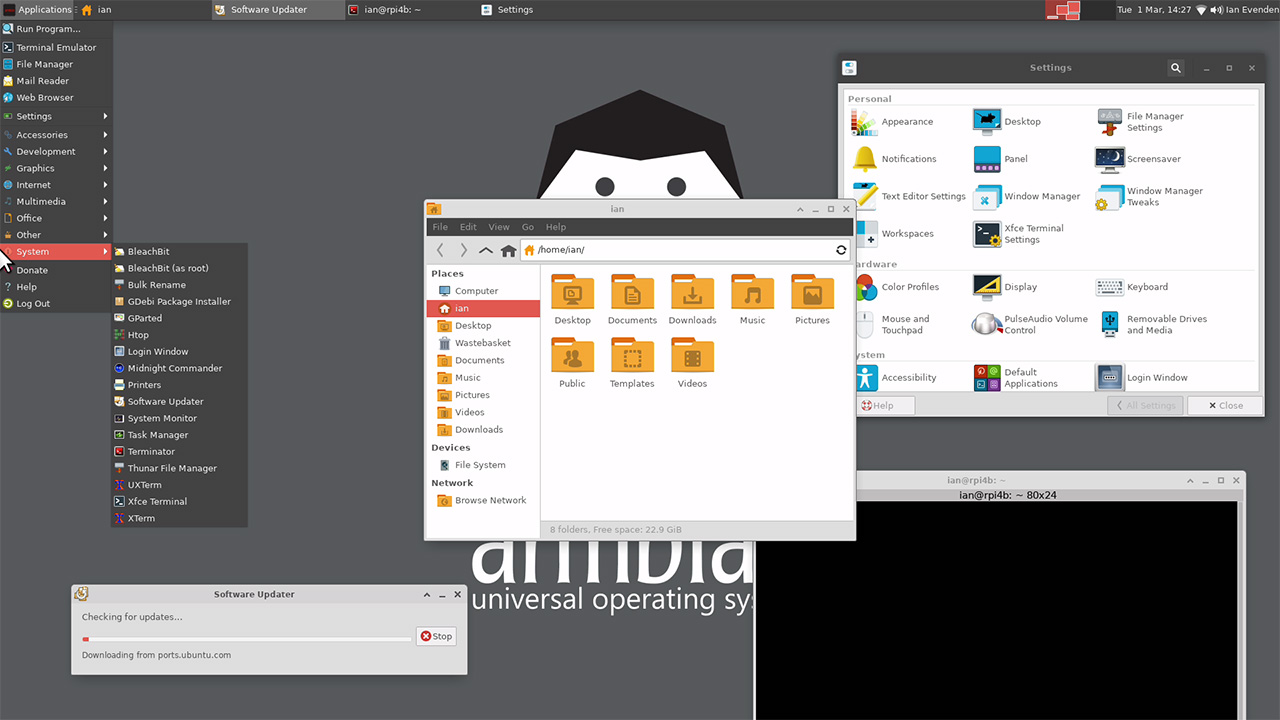Raspberry Pi 64-bit Armbian Gets New Release
Armbian, a community-run Linux distro that supports over 100 Arm- and X86-based SBCs, has announced a new version, 22.02, and there's an optimized image ready to be installed on your Raspberry Pi.

Armbian takes a ‘mainline first’ approach to Linux, attempting to unify the experience across many different boards, each of them optimized for at a kernel or userspace level to maintain performance. Images are based on either Debian or Ubuntu, and use mostly vanilla upstream package repos, as most of the work has gone into kernel optimization.
The new release is the first to support UEFI on both Arm and X86 using GRUB, so it can boot on Intel Macs, and along with the hundreds of bug fixes you’d expect from a new version, there's a new Extensions build framework that allows users to extend the build system independently from the core code base, with over 20 hooks available.
The Raspberry Pi build officially works on the Raspberry Pi 4B, though owners of Raspberry Pi 3, 400s, Zero 2Ws and Compute Modules 3 and 4 can also install it. This latest release comes with a 64-bit kernel enabling 8GB board owners to utilize all the extra RAM.
Armbian is heavily focused on upstream keeping the OS as vanilla as possible. Armbian is using Raspberry Pi OS kernels 5.15 LTS and 5.16, and running the lightweight Xfce desktop environment. Many current builds use the 5.15 kernel, with the 5.16 version deployed on edge builds to support hardware such as the Orange Pi R1 Plus LTS board. Debian builds of the new OS also have 3D support enabled, and NanoPi M2V2 boards get fan controller support.
Armbian’s download page is the place to go to see if there's a build ready for your development board of choice. At the time of writing, support was fairly broad, with boards from BananaPi, Nanopi, Oodroid, RockPi, Olimex, Pine, and Asus Tinkerboard available, as well as the Nvidia Jetson Nano. Alternatively, you can build your own if you have access to an x86 PC capable of running the officially supported compilation environment, Ubuntu Hirsute 21.04.x amd64. A quad-core CPU is advised, and you’ll need VirtualBox or other virtualization software installed.
Get Tom's Hardware's best news and in-depth reviews, straight to your inbox.

Ian Evenden is a UK-based news writer for Tom’s Hardware US. He’ll write about anything, but stories about Raspberry Pi and DIY robots seem to find their way to him.